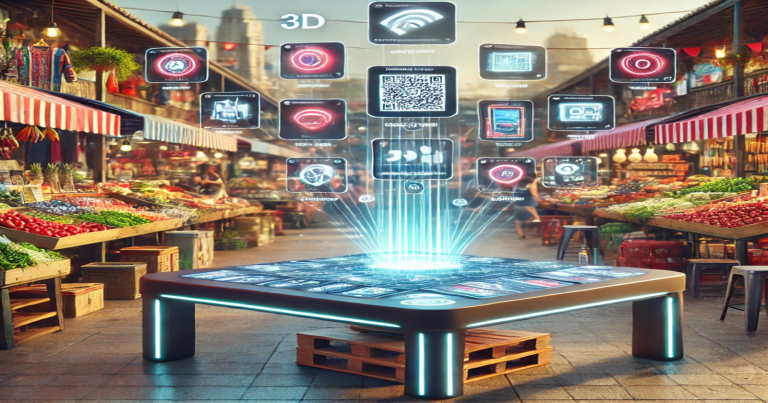Sales promotion is one of the marketing strategies businesses adopt to create demand for their products, attract new customers, and achieve high sales within a short period. Additional value and incentives are conferred onto the customer for better attraction toward a product or service. Sales promotion is a marketing strategy that uses incentives to increase sales, customer loyalty, and brand awareness. It’s a short-term campaign that can involve discounts, freebies, contests, and more.
Sales promotion attempts to invoke urgency within the customer that will determine his/her choice of purchase. While other marketing strategies like advertisement are slowly building up the brand’s image and awareness, sales promotion is much more of a short-term measure. Thus, it quickly creates maximum demand for a product through incentives such as discounts and limited-time offers, which facilitate immediate purchases.
What is Sales Promotion?
Sales Promotion is a temporary inducement to encourage demand and increase the market sale of a product. It consists of offers like discounts, coupons, rebates, samples, contests, etc., that intend to encourage buying behavior immediately when placed in front of the customer. Sales promotions do not create brand awareness like advertising; they act directly on the buying behavior, thereby immediately enhancing sales. The promotions occur during festive seasons, product launches, or clearance sales. Companies that do not offer adequate sales promotions continue to starve in front of their competitors, whose shelves are filled with sweet deals for clients. Sales promotion increases any business’s revenue, builds brand loyalty, and develops good client relations.
Sales Promotion Techniques
There are many ways of using sales promotion to attract customers to a company or product. These techniques help build brand excitement and give a reason for purchase. Some of the best sales promotion techniques are mentioned below:
Discount and Price Deals
A discount, the commonest method in sales promotion, is offered to customers whereby the price of a product is reduced for a short period. This further encourages many people to buy more in inventory clearing much faster.
Coupons and Vouchers
Coupons are discounts that give customers cash reductions against future purchases. These could either be paper-based, digital coded or app-based vouchers. Coupons create loyalty in customers to make repeated purchases again.
Buy One Get One Free (BOGOF)
The BOGOF method sells one product to the customer and then offers a free product. It captures a lot of customers, as it leads buyers to purchase more, thus increasing the overall sales volume of the brand.
Free Sample
Offering things for free is the best way to allow customers to sample the products. A free sample would help consumers feel comfortable buying new products before they find they like them. Therefore, it works well when launching new products.
Cashback Offers
The buyer gets a part of the cash spent on buying an item as cashback. It adds value to after-sales satisfaction and the likelihood of repeat purchases.
Contest and Sweepstakes
This part of the customer experience would usually be linked to a contest, in which case the customer gets to enter the competition and receives the winning prizes. Thus, this is a two-pronged approach: excitement and customer engagement serve to pump brand awareness.
Loyalty Program
Frequent buying clients are rewarded for their purchases by giving them points, offering purchasing discounts, or offering exclusive offers. The loyalty programs are important for the business and the customer in such a way that they promote the retention of the customers over the years along with their sales.
Offer Valid For A Limited Time
Offers valid for a limited period create an urgency to make immediate decisions. Such flash or short-time promotions within a very short duration also bring in more sales.
Importance of Sales Promotion
Sales promotion is one of the most fundamental ingredients in business marketing, and it is a tool for fulfilling all business objectives within a competitive environment. This tool is of immense importance in providing growth in sales, good customer relations, and improved branding visibility for up-and-coming brands. The importance of sales promotion can be summarized in a brief sentence.
Increase in Revenues and Profits
New promotions yield higher sales volumes, revenues, and sales bases. Discounts, cashback offers, and special limited-time promotions drive customers into a business and, thus, lead to higher overall profits.
Brand Awareness Creation
Promotions such as contests and sponsorships can create great impressions, and free samples will add to brand visibility. Customers who see certain promotional offers come from a brand are conditioned to recognize and trust the brand for a long time.
Enhances Customer Loyalty
The loyalty program or the discounts offered only for repeatedly coming into the establishment allow long-term engagement. A well-executed sales promotion strategy has a high chance of making customers feel appreciated and, thus, higher retention.
Urges Quick Decision Making
Customers easily make instant purchases with such features as limited-time offers or flash sales. This is ideal for e-commerce businesses working to capture high sales within a short period.
Competitive Advantage Gaining
In a highly competitive market, businesses put themselves in a different slot than the opposite. Giving enticing promotions allows the company to get something up in edging competition and pulling customers from rival brands.
Help with New Product Introductions
New product launches will always be tough, but sales promotions such as free samples, introductory offer discounts, and buy one get one free will allow customers to try a new product without hesitation, increasing the chances of acceptance in the market.
Advantages Of Sales Promotion
Sales promotion is a marketing strategy that businesses use to increase sales and acquire new customers while maintaining the current ones. It includes several short-term incentives, like discounts, coupons, free samples, buy-one-get-one (BOGO) offers, contests, and loyalty programs. These initiatives always push their immediate purchases of products and excitement for a brand or product.
Increases Short-Term Sales and Revenue
One of the greatest merits of any sales promotion would be the general increased sales from its use. Discounts and such special offers naturally draw in consumers making them more apt to purchase the product sooner rather than later. Flash sales, limited-time discount sales or seasonal promotions tend to bring about urgency in consumers as they pull them in to the swift action before it goes off.
More importantly, sales promotions would coax hesitant consumers into buying. Many people will generally refrain from buying an item due to the price, yet low price or promotion could be the motivation behind their purchasing action. This would be very typical during the period of a new launch since it usually requires substantial initial sales to generate momentum and create awareness.
Attracting New Customers and Increasing Market Penetration
Sales promotions effectively attract new customers who might never have considered the brand or product. Most customers would be very price sensitive and looking for the best value for their money, but they would reconsider when a good promotion comes their way.
For example, the supermarket gives a customer a free sample of a new drink to taste without prior financial commitment. If the person likes the taste, he will purchase the drink. Another example is the introductory offer “50% off first buyers” that an e-commerce site typically gives to attract first-time buyers and motivate them to shop at the site.
Improves Customer Loyalty and Retention
Sales promotions also bear fruit after the advertisement shows an increase in new customers that have been added into the network, sales promotion works just fine to keep the existing customers locked. A business that mostly keeps exclusive deals, discounts, and loyalty gifting will create a value-display appreciation toward its customers, making it nearly impossible for them to leave.
Encouraged Retailers to Stock Up More Products
This type of trade promotion, which includes special bulk discounts and certain other incentives, encourages retailers to stock the brand product more, thereby increasing the brand’s market penetration. Sales promotion is an effective tool across industries-from fast-moving consumer goods (FMCG) companies to retail chains, e-commerce businesses, and other service providers.
Types of Sales Promotions
The classification of sales promotions depends on the target market and the purpose of the promotion. The essential types remain such:
Consumer sales promotion
This consumer sales promotion attempts to persuade the end customer to make an effective buying choice for the product through methods that companies employ in the form of prices, free samples, and discounts to attract customers.
Trade sales promotion
Trade sales promotions concern wholesalers, distributors, and retailers. These promotions are the kinds of offers made by manufacturers through bulk discounts, free stock, and trade allowances to encourage retailers to stock their products.
Online Sales Promotion
Digital promotions have become extremely popular due to the boom in e-commerce. The online use of discount codes, free shipping, and cashback is nothing more than online sales promotions.
Event-Based Sales Promotion
According to brands, sales promotions are for special events and occasions like holidays. These days, promotions capitalize on consumer spending on special back-and-above occasions.
Difference Between Advertising and Sales Promotion
Commercial advertisements and sales promotion are two different facets of marketing. The table below presents the distinguishing features:
| Feature | Advertising | Sales Promotion |
| Objective | Creates brand awareness | Increases short-term sales |
| Duration | Long-term | Short-term |
| Methods | TV, radio, print, digital ads | Discounts, coupons, contests |
| Customer Engagement | Indirect | Direct |
| Cost | High | Lower |
Objectives of Sales Promotion
Sales promotion objectives generally aim to achieve those specific goals in marketing, such as:
- Increasing sales volume: Short-term promotions suddenly raise sales, stimulating customers to buy immediately.
- Attracting new customers: Promotions will attract the attention of potential buyers who might not have considered the brand before.
- Retaining existing customers: Loyalty programs help to retain long-term customers through exclusive discounts.
- New product introduction: Sales promotions support and persuade consumers to try new products.
- To dispose of excess inventory: Discounts stimulate fast sales in the case of excess stock.
Sales Promotion Examples
The market is highly competitive, so companies must keep being creative to stay ahead. With sales promotion, one benefits the old customers and attracts repeat purchases. Sales promotion examples are as follows.
| Brand | Promotion Type | Description |
| Coca-Cola | Contests | Customers participate to win prizes |
| Amazon | Flash Sales | Limited-time discounts |
| McDonald’s | Coupons | Discounts on selected meals |
| Nike | Limited-Time Offers | Seasonal discounts on selected products |
| Unilever | Free Samples | Free product samples for customer trials |
Features of Sales Promotion
Sales promotion increases sales and, therefore, improves cash inflow. It brings immediate satisfaction and leads to quick purchases. Some of its features are
- Creates urgency: Special deals for a limited time cause hasty actions.
- Provides impulse buying: Wonderful promotions can trigger unplanned purchases.
- Strengthening Relationship with Customers: Such loyalty programs will add value in keeping customers longer.
- Gives Competitive Advantage: The brands that run good promotions can capture a larger market share.
- Builds Brand Awareness: Promotions give visibility.
Sales Promotion FAQs
What are sales promotions?
Sales promotions are marketing activities that provide short-term incentives to stimulate demand for a product. Generally, discounts, coupons, and contests are effective strategies to pull customers toward buying a product besides boosting sales.
What are the different types of sales promotions?
The major types are consumer sales promotion, trade sales promotion, online sales promotion, and event-based sales promotion.
What are the differences between advertising and sales promotion?
Advertising creates long-term brand awareness, while sales promotions create short-term sales.
Why is sales promotion important?
Sales promotion is related to a huge increase in revenue for the companies, social awareness of the brands, and attracting altogether new customers.
What are the most used sales promotion techniques?
Popular techniques differ, including discounts, coupons, cash-back offers, contests, free samples, and loyalty programs.


